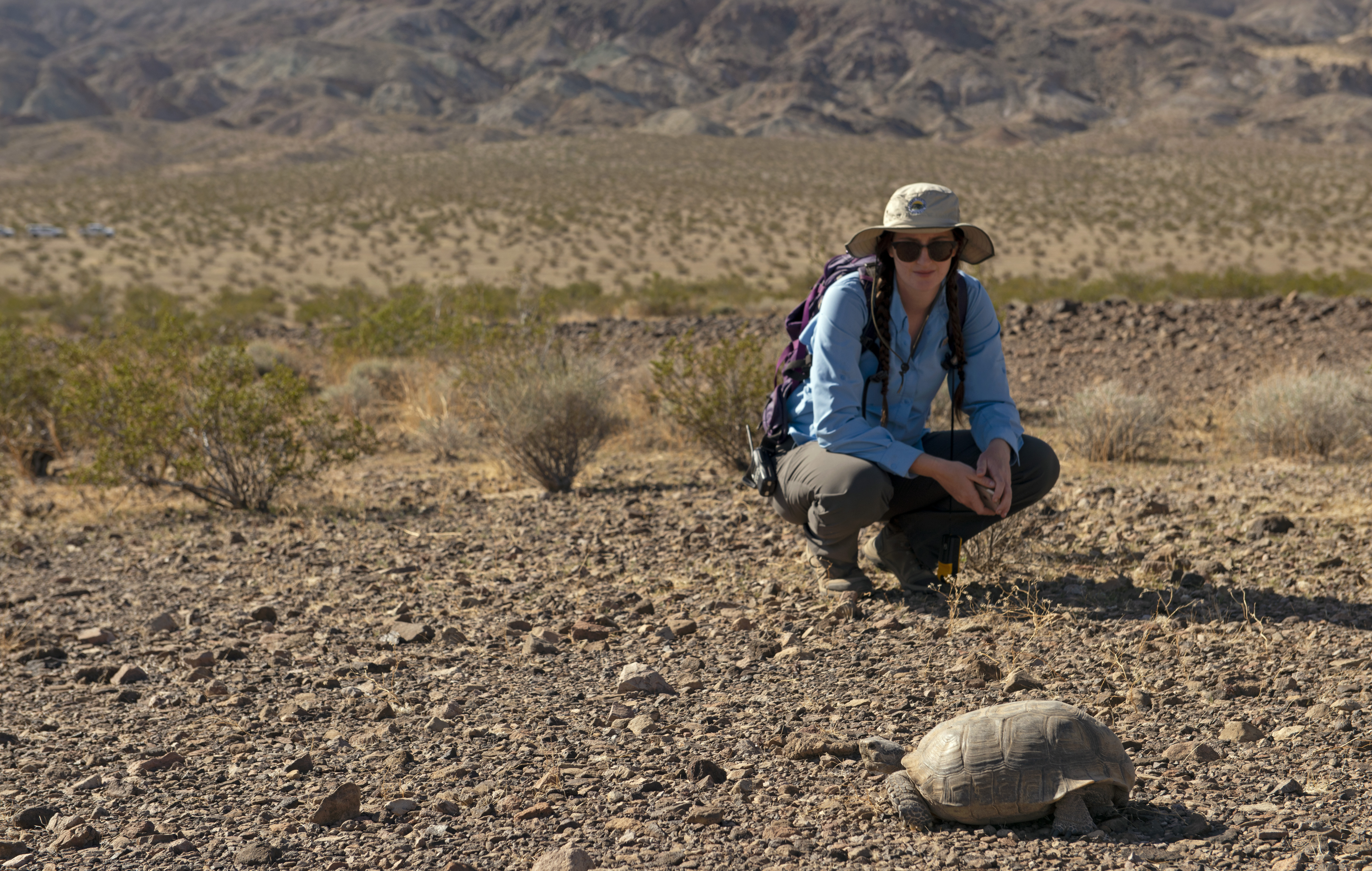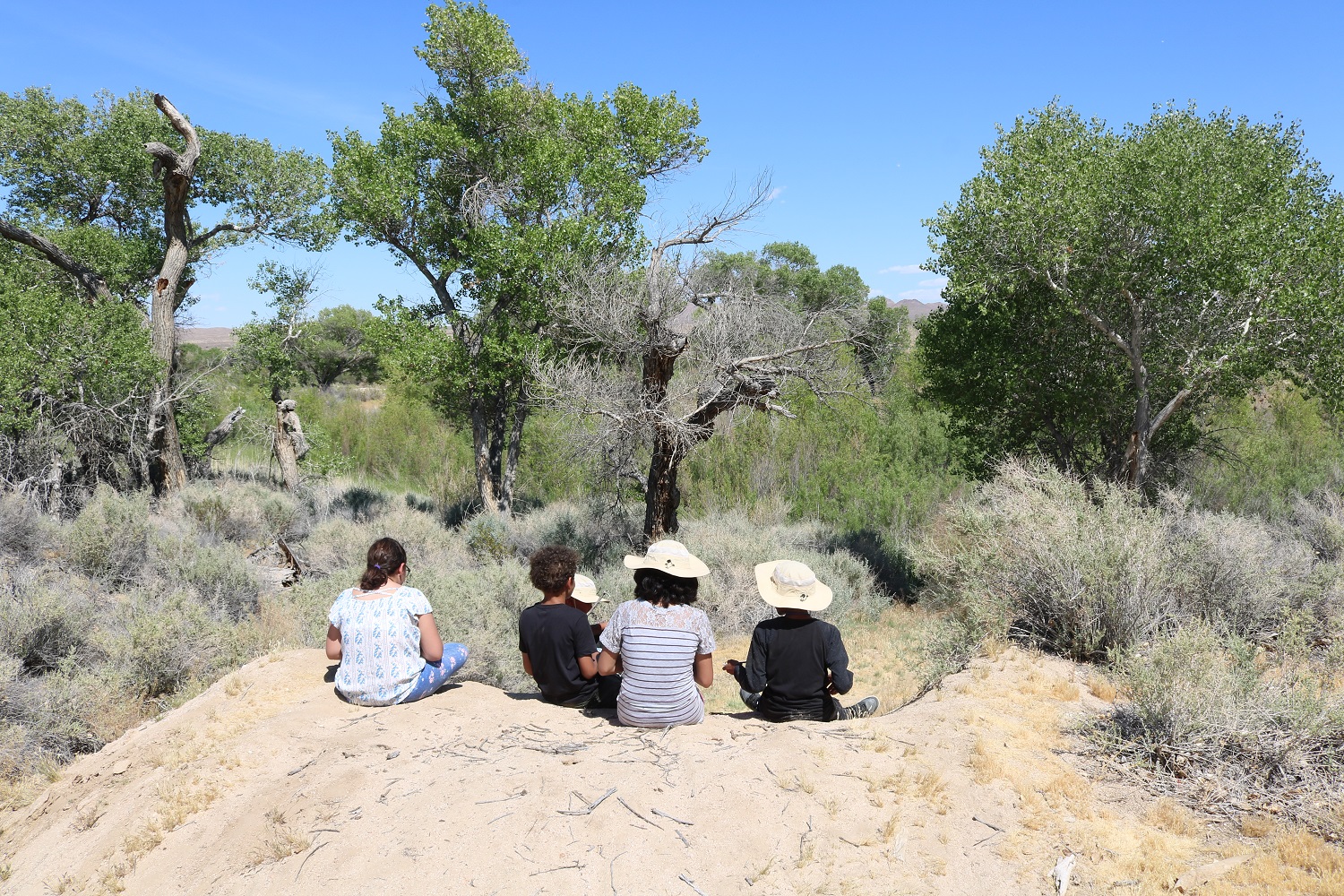
Photo by Brandy Dyess/Mojave Desert Land Trust
A champion of conservation, the Mojave Desert Land Trust (MDLT) protects over 24.5 million acres of land within the entire California portion of the eastern Mojave and Colorado deserts. In fact, MDLT has donated more tracts of land to the national park system nationwide than any other non-profit since 2006.
PLA had the opportunity to interview MDLT's Executive Director, Geary Hund, who has worked as a conservation professional for more than 40 years, beginning as a ranger and then as an ecologist with California State Parks.
What does “conservation” mean to MDLT, and why is it so important?
Hund: Conservation means many things: preserving amazing desert landscapes and resources for this and future generations, providing space and connectivity to ensure the resiliency of plants and animals in the face of threats like climate change and development, acquiring lands to increase the integrity of our protected lands and more.
In focusing on the restoration of the desert landscapes, we've done some groundbreaking work in learning how to propagate plants and grow them on a larger scale. Through our plant conservation and restoration program, we've become leaders in propagating and growing native Mojave and Colorado desert plants.
Conservation is also about communicating to diverse populations the importance of these lands to recreation. They are places of respite from the stresses of everyday life, places where we all can find personal restoration and peace.
How have MDLT's programs strengthened your relationship with your agency partners?
Hund: Our programs have brought us together with our agency partners in an effort to achieve the mutual goal of desert conservation. This collaboration has built trust and created collegial relationships, allowing us to provide support for each other on many common goals.
How does MDLT work with its agency partners to figure out the best ways to support them and vice versa?
Hund: Communication is key. We make sure to have regular conversations with our partners through periodic meetings with park superintendents and BLM managers, agency realty specialists, etc. We set priorities and look for funding sources together, and we provide information that they can use to apply for federal funds so that we can convey lands to them that we purchase.
Our collaboration also goes beyond land acquisition. For instance, we meet regularly with the manager for the Mojave Trails National Monument, looking for ways to collaborate including public engagement and habitat restoration.
We also work with the Department of Defense to find areas of mutual benefit to conservation and military preparedness. For example, we work with them to identify lands under their flight corridors and adjacent to bases that they would like to maintain as open space that are important to conservation, such as wildlife corridors. We then enter into an agreement for them to place a conservation easement over the land and to provide for its future management.

Photo by Art Lemus
What are some MDLT events/programs you'd like us to highlight to our readers?
Hund: We recently hosted a Latino Conservation Week (LCW) event where we introduced local communities to the land, its history and geology. We incorporated information on how to use the land responsibly with minimal impact to make sure it's preserved for them and other visitors in the future. In participating in LCW since 2016, our motivation has been to provide access and knowledge of conserved areas to groups that previously have has little knowledge and access to them. Ultimately, we want to build a well-informed, broader constituency of people that will support their protected public lands.
We've also recently launched an internship opportunity for those interested in the natural sciences. The interns will be working with the Mojave Trails National Monument on desert bighorn sheep research. This internship is a new MDLT initiative in partnership with the BLM's Women in Science Discovering Our Mojave (WISDOM) program, which seeks to engage a traditionally underrepresented constituency - minority women studying Science, Technology, Engineering and Mathematics - to collect data to aid in resource management.
"Our great desert parks are immeasurably enhanced by MDLT's work in securing these lands for transfer to public ownership. Scenic views, sensitive habitat and historic resources that might other be lost are now protected in perpetuity for all to appreciate and enjoy. MDLT is a model of effective local action in support of these nationally treasured landscapes." - Gregory Gress, Chief, Pacific Land Resources Program, NPS

Photo by Mojave Desert Land Trust